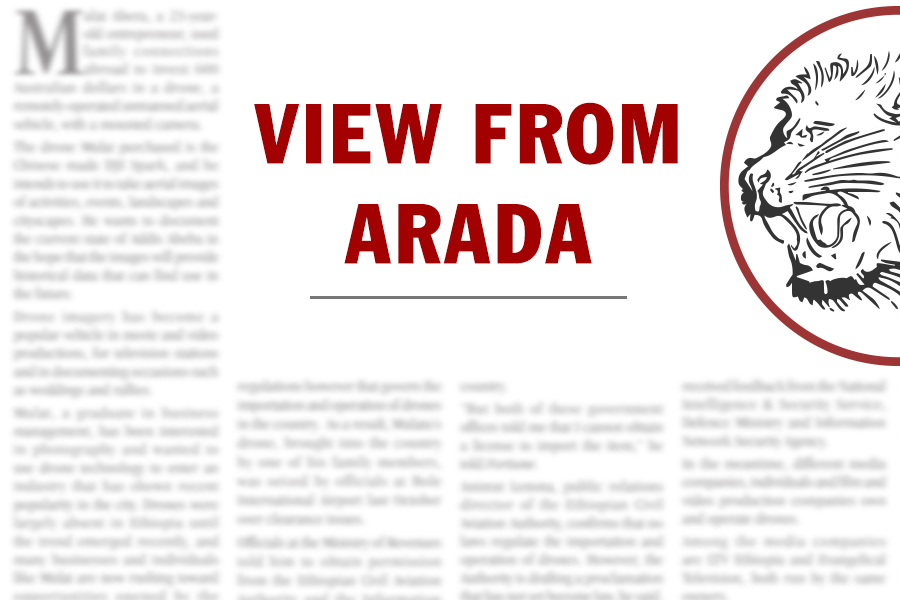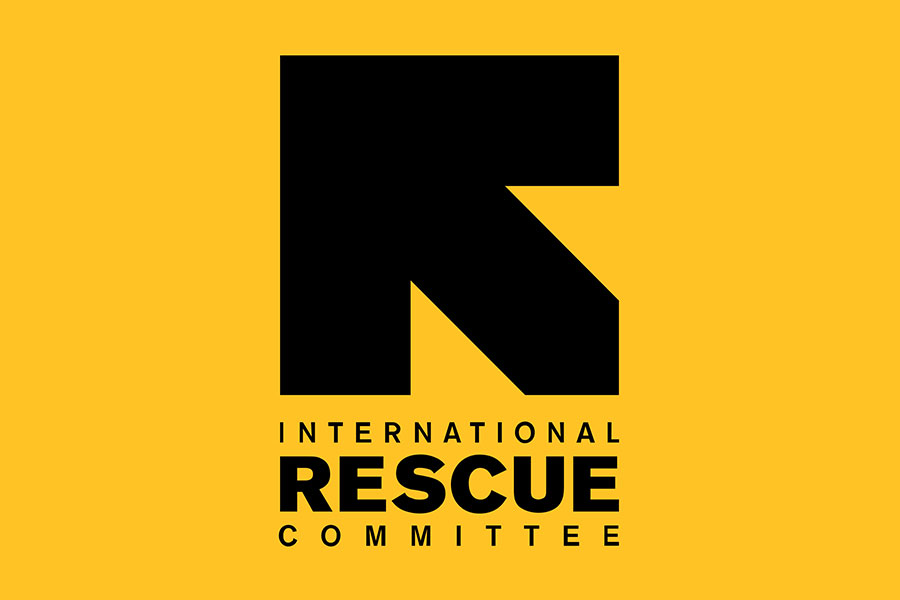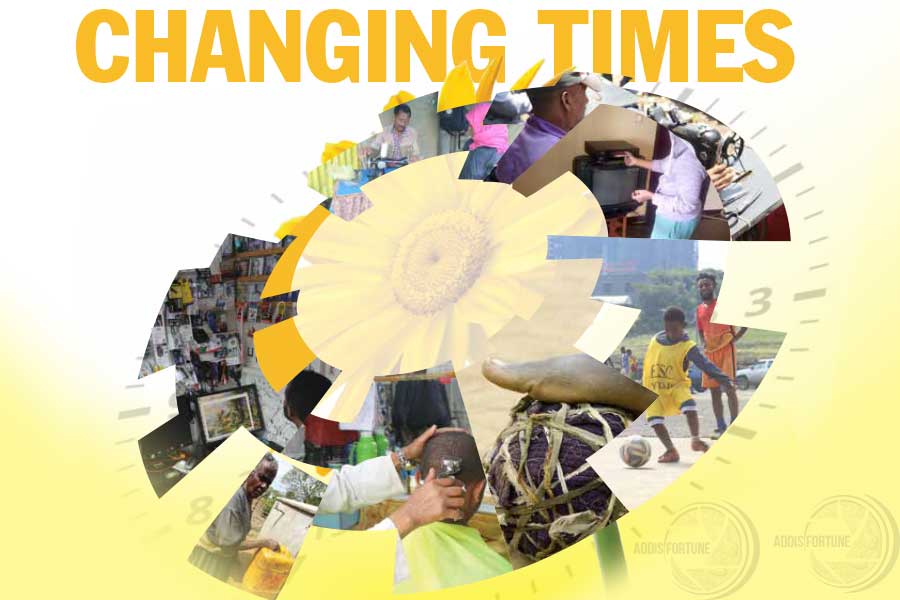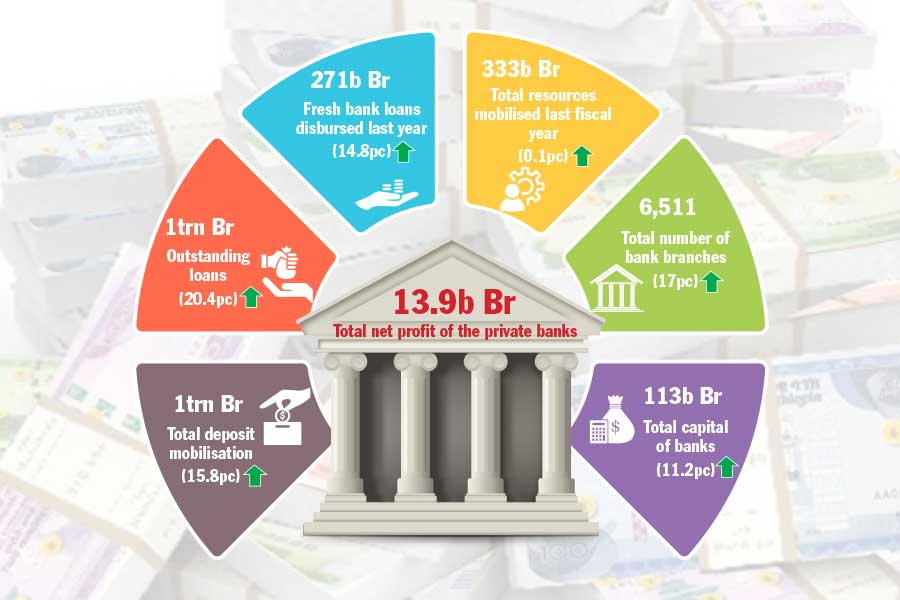
Apr 16 , 2022.
Earlier this year, a pandemic that ravaged the world was finally subsiding, and demand for consumer goods increased. Some dared to theorise that countries were entering the 'roaring twenties' when several did a century ago. Many agreed. However, the sanguinity did not last long. Russia’s President, Vladimir Putin, single-handedly poured cold water into any hope for meaningful recovery by invading Ukraine and ending the long-held narrative of “the end of history.”
There is no better signal to forewarn that harrowing times may be ahead than a slew of reports that came out recently on the state of the food security situation in the world. There are few as alarming as Oxfam International’s recent report. Driven by conflict, economic fallout from the pandemic and climate crisis, the aid organisation warns of a “hunger pandemic.” Over the past four months, the world has added 15pc more people living in extreme hunger, reaching 155 million. The number of people living in "famine-like condition" - the aid world's jargon to mean starvation - has grown six-fold since the pandemic began. The hunger hotspots are all in the Global South (no surprises there), most in sub-Saharan Africa and the Middle East. Ethiopia is among the worst-hit – no surprises here too.
Underlying Ethiopia’s particular situation is a report by the Global Hunger Index. It shows that the two decades since the 1990s have seen the country halve exposure to food insecurity and malnutrition. Sadly, this year does not offer similar uplifting news. World Vision discovered a 50pc loss in crop productivity due to drought. The Global Hunger Index warns there will be 40pc more people in need of food assistance than in 2021, the peak of COVID-19. Three-fourths of Ethiopian households are also unable to afford a nutritious diet.
The reasons for the rising hunger crisis are no secret. The most obvious is the civil war, an act of military misadventure by political elites inebriated with grievances, arrogance, and mutually reinforcing insecurities. Outside of causalities and the destruction of property, millions of people are left to starve, and thousands to perish. The hungry have political, social and religious leaders to blame for this unforgivable situation.
A conflict-induced hunger crisis would have been bad enough even in a good year. But the convergence of bad luck over the past two years affecting low-income countries such as Ethiopia is unprecedented. The pandemic has not killed as many at home, at least according to official figures. But it has battered the economy, wiping out tourism and service export (aviation industry) revenues, and later inducing a global shipping crisis, tightening fiscal space against social welfare support.
The bad luck does not end there. Ethiopia has also suffered from flooding and a desert locust invasion. It is currently undergoing a severe drought in the south and eastern parts of the country, where 68,000 cattle were lost. The Russian invasion of Ukraine is proving to be the crisis that breaks the camel’s back, sending commodity prices soaring globally.
Neither of these Eurasian countries is critical to the world economy in terms of GDP, especially Ukraine. But they punch above their weight when it comes to some of the most basic food items. Both cannot export in any meaningful way now, one because of the ongoing war, the other sanctions. The price is being paid severely by the poorest countries, including Ethiopia.
Since the FAO began reporting, global wheat prices have been the highest. The same goes for cooking oil, which is 23pc costlier since last month, and fertiliser, all at new record highs. Together, global food prices rose 12.6pc month-on-month in March, reaching the highest level ever reported by the FAO since it introduced the Food Price Index.
The higher prices are most concerning for countries already under stress, including from “conflict, natural disasters, economic conditions or, as it is often the case, some combinations of those,” according to the FAO. Ethiopia fits this bill.
The World Vision puts Ethiopia second of five countries that could have their population face starvation resulting from Russia's aggression on Ukraine. It warns that 45 million people in 43 countries may starve to a horrendous consequence. FAO and WFP jointly released an early warning report that recently identified 20 countries at the highest risk of massive death from starvation. Ethiopia - alongside South Sudan and Yemen - claimed the top three.
The question is, what can be done?
Regrettably, very few options appear to be around to pick in the short term. Desperate efforts and knee-jerk responses such as extending franco-valuta privileges to essential food items may help. But the extent to how far the fiscal space and foreign currency reserves have been stretched has paralysed economic institutions.
The political leadership can help, though. It could start from the acute realisation that Ethiopia cannot continue under the conditions of civil war. Millions are starving in conflict-afflicted areas, and millions more across the country are food insecure. If the political leaderships care enough about people's suffering in whose name they are prosecuting the war, they can show it by ensuring more food and less ammunition to fire. Entering into a negotiated settlement through a truce, cessation of hostilities, ceasefire and a grand bargain can go a long way to reverse the sad and painful course of history.
In the long-term, the sudden gathering of storms, from conflict to climate change and geopolitical events, should be used to inform planning for food security. It starts with peace and greater political consensus. All the fertilisers, market linkages, tractors and improved seeds are useless if the farmland becomes a battlefield. Peace and stability are the foundation upon which economic wellbeing is built. If Ethiopia’s experience is not persuasive enough, look to Somalia, South Sudan, Yemen, Afghanistan and Syria - conflict rarely shows up without its close accomplice, famine.
The urgency for improving agricultural productivity has also never been greater. The world’s poor have climate change and increased geopolitical risks to thank for this. The former will become an even greater challenge by making extreme weather events more frequent. This is already taking place in Ethiopia. The drought in the south and east of the country is the worst in four decades. The desert locust invasion was the worst in a quarter of a century.
More geopolitical risks also look likely. Rice, a staple cereal for half the world population, is the only reason the global hunger crisis is not worse than it already is, as there is an inventory surplus. Imagine a similar crisis in Asia that debilitates the transport of rice in a repeat of what is already taking place in Europe. It is unthinkable, but as the Russia-Ukraine war, or even the horror of Ethiopia’s civil war, has shown, it is not as improbable.
Even a Cold War, short of a hot one, would be bad enough. Great power rivalry will mean that critical aid will be competing for financing and attention with the efforts of powerful countries to contain one another. There is already evidence of this. Denmark and Norway have already slashed funding to Mali, Syria and Bangladesh, according to Oxfam. If more countries in the Global North face a disaster similar to Ukraine, or even an economic crisis like Greece’s in the 2010s, far-off countries risk being reduced to footnotes.
Food security has reasserted itself as an even greater priority due to climate change and increased domestic and international security risks. In better times, addressing food insecurity used to be considered a critical stepping stone towards economic takeoff. Now, it is an existential matter. Policymakers and leaders in Ethiopia ought to pay attention. For their own sake.
PUBLISHED ON
Apr 16,2022 [ VOL
23 , NO
1146]

View From Arada | May 25,2024

Editorial | May 09,2020

Life Matters | Nov 20,2021

Radar | Apr 02,2022

Commentaries | Apr 04,2020

Fortune News | Sep 08,2019

Radar |

Commentaries | Sep 06,2020

Fortune News | Feb 06,2021

Radar | Apr 10,2021

My Opinion | 131454 Views | Aug 14,2021

My Opinion | 127806 Views | Aug 21,2021

My Opinion | 125787 Views | Sep 10,2021

My Opinion | 123422 Views | Aug 07,2021

Dec 22 , 2024 . By TIZITA SHEWAFERAW
Charged with transforming colossal state-owned enterprises into modern and competitiv...

Aug 18 , 2024 . By AKSAH ITALO
Although predictable Yonas Zerihun's job in the ride-hailing service is not immune to...

Jul 28 , 2024 . By TIZITA SHEWAFERAW
Unhabitual, perhaps too many, Samuel Gebreyohannes, 38, used to occasionally enjoy a couple of beers at breakfast. However, he recently swit...

Jul 13 , 2024 . By AKSAH ITALO
Investors who rely on tractors, trucks, and field vehicles for commuting, transporting commodities, and f...

Jun 29 , 2025
Addis Abeba's first rains have coincided with a sweeping rise in private school tuition, prompting the city's education...

Jun 29 , 2025 . By BEZAWIT HULUAGER
Central Bank Governor Mamo Mihretu claimed a bold reconfiguration of monetary policy...

Jun 29 , 2025 . By BEZAWIT HULUAGER
The federal government is betting on a sweeping overhaul of the driver licensing regi...

Jun 29 , 2025 . By NAHOM AYELE
Gadaa Bank has listed 1.2 million shares on the Ethiopian Securities Exchange (ESX),...